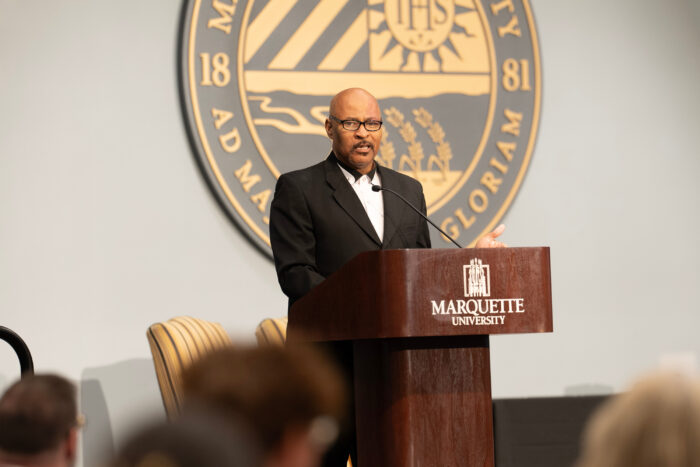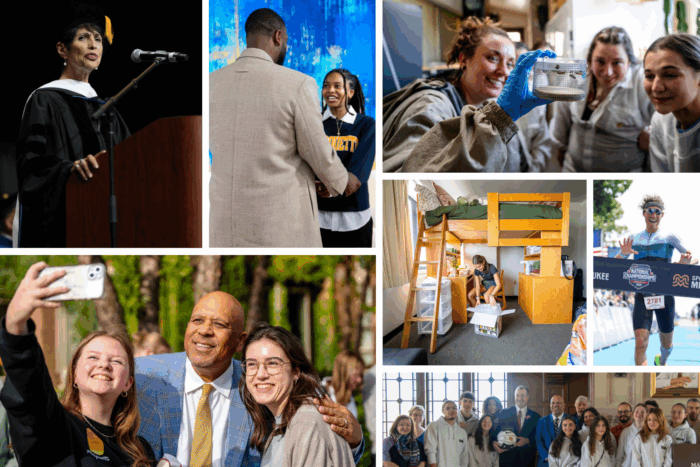National First-Generation College Celebration Week occurs every year around Nov. 8 to acknowledge and elevate first-generation college students and alumni identities and contributions. Nov. 8 was selected as National First-Generation College Celebration Day in honor of the signing of the Higher Education Act of 1965. The act was intended to create greater access to higher education for students from minority and low-income backgrounds.
In addition to creating federal grants and loan programs to help students finance their education, HEA ushered in the Federal TRIO programs, necessary for postsecondary access, retention and completion for potential first-generation college students.
First-generation students make up 22% of the undergraduate student population at Marquette University, which honors the founding mission of commitment to access to a transformative Catholic, Jesuit education.
In celebration of National First-Generation College Celebration Day, Marquette Today this week will feature several first-generation students at Marquette who will share their experiences and advice for future students.
Meet Kim Gonzalez, a senior biomedical sciences major in the College of Health Sciences.

Gonzalez’s parents migrated from Mexico to the United States and she couldn’t help but recognize the special financial opportunity that attending college presented. An opportunity no one in her family had before her.
“In high school, I discovered my passion for learning and helping others,” Gonzalez says. “Advancing my education was a chance to not only better myself but better my family and repay them for the life they have given me in the United States.
“For this reason, I have taken advantage of as much as possible from Marquette as I continue expanding my horizons.”
During her time at Marquette, Kim has worked for the Salud Social internship program through the Arrupe Center, assisting at several Sixteenth Street Community Health Clinics in the area.
The clinic Gonzalez works in is located in a Hispanic area of Milwaukee that she says reminds her of the family members she grew up around.
“Working for the clinic and having numerous emotional encounters with patients has shown me that I am on the right career path as a pre-med student, but also fulfills me in knowing that I might not be having the same experience had I not come to Marquette,” Gonzalez says.
Despite having success academically, Gonzalez says her biggest challenge thus far in her academic career has been navigating her social life, which caused her to experience anxiety. Gonzalez came to Marquette as a sophomore after learning in a virtual format her freshman year.
Gonzalez said to overcome her anxiety, she realized she was the only person who could build a network of friends and mentors for herself.
“The welcoming students, faculty and staff definitely made it easier to make friends and build that network and support system,” Gonzalez says.
For future first-generation students, Gonzalez offered some advice: don’t be afraid to ask for help.
“Coming into college, more challenges are presented to first-generation students than to a typical student – challenges that we might not know how to navigate,” Gonzalez says. “Many times, first-generation students grow up making important decisions on their own. This makes it very easy to fall into a stubborn mentality where we rarely consider asking for help when needed. It feels as though asking for help is unnecessary when we have figured so much out on our own already.
“I would encourage future first-generation students to talk to their professors, the helpful people at the counseling centers, or a tutor in order to make the four years here less complicated than they need to be.”
Marquette has many on-campus resources for student success. For resources specific to first-generation students, see the first-generation college students resource list.


